International ILIAS Blog
More Than Software: The Lasting Impact of the ILIAS Conference 2025

Two days of ILIAS conference. Over 60 sessions, 100 speakers, almost 300 participants, about 50 who followed along online. And two topics that overshadowed everything else: open source software and artificial intelligence. But it wasn't only the technological side that played a role. It was about more. About community. About the future. About openness. And about opportunities and prospects.
The conference venue was the historical Villa Elisabeth in the centre of Berlin. The surrounding park was a place to talk and network and was also the location of the social event, with a DJ and – thank goodness – generally sunny weather. The location was compact and well arranged, making it possible to make new contacts in a friendly atmosphere. Before the social event kicked off, and for those who were interested, there was the opportunity to take part in a tour along the former Berlin Wall and thereby explore the eventful history of the place. One highlight of the conference (in addition to all of the fascinating presentations and workshops, of course) was the catering, which was served in the neighbouring St. Elisabeth church. All in all, it was breathtaking – both the location and the food.
The conference days were characterised by forward-looking topics: the keynote speeches and presentations covered digital transformation, open technologies and the user communities. For example, Dr. Johanna Sprondel (Urania Berlin), in her opening keynote speech, emphasised the importance of proper and meaningful digital transformation as an essential future competence. She clearly explained why having digitised something does not automatically make it better. Digitisation can make things better, but how it is done is the deciding factor. This was a theme that ran through many of the presentations at the conference.
What else made the programme so special was the variety of perspectives. One hundred speakers, in workshops, lightning talks, presentations and reports, really helped shape the two days. Without them, the programme wouldn't have been so varied or informative and certainly wouldn't have been so lively. Their engagement made this conference what it was: inspiring, relevant and full of impulses for the future.
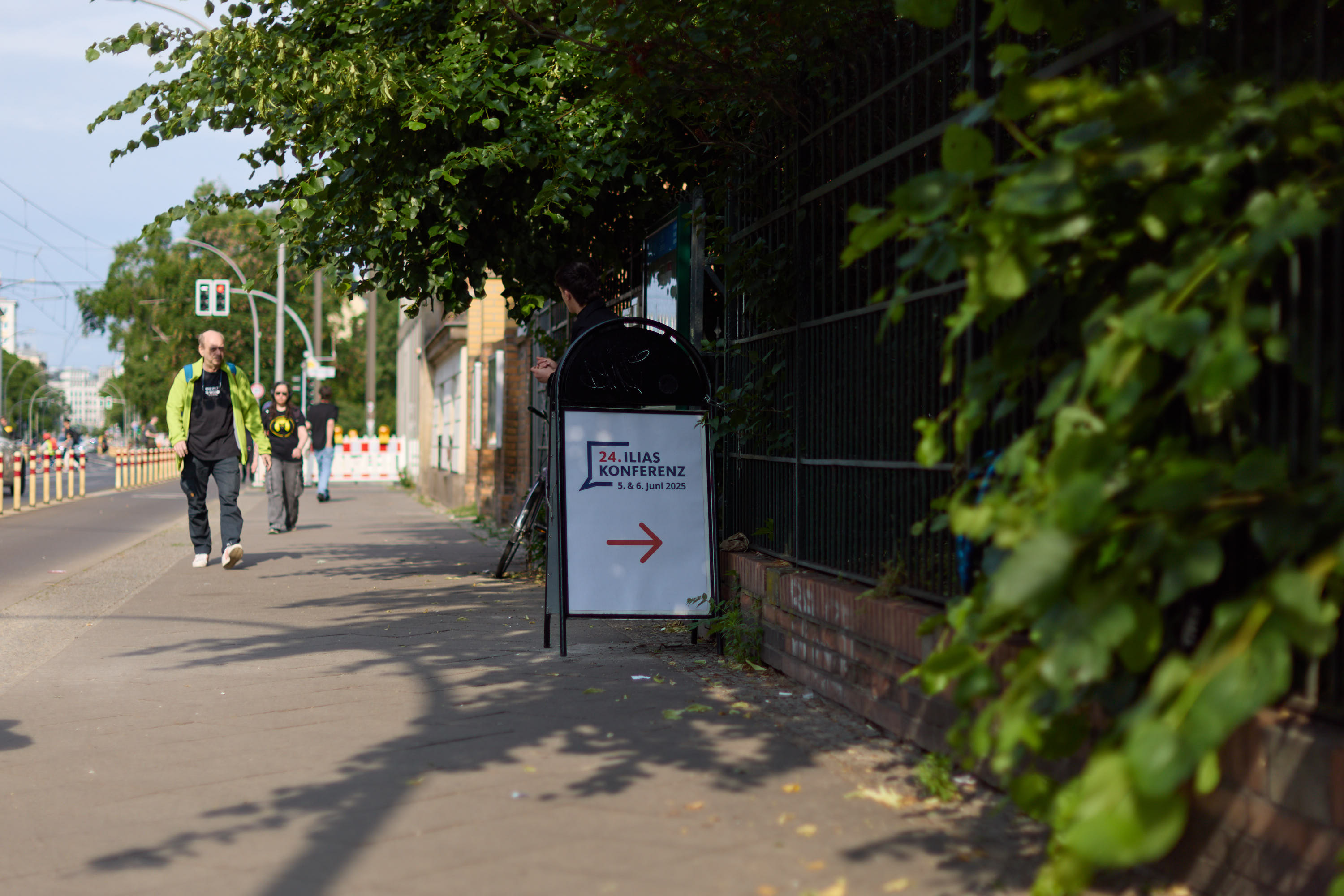
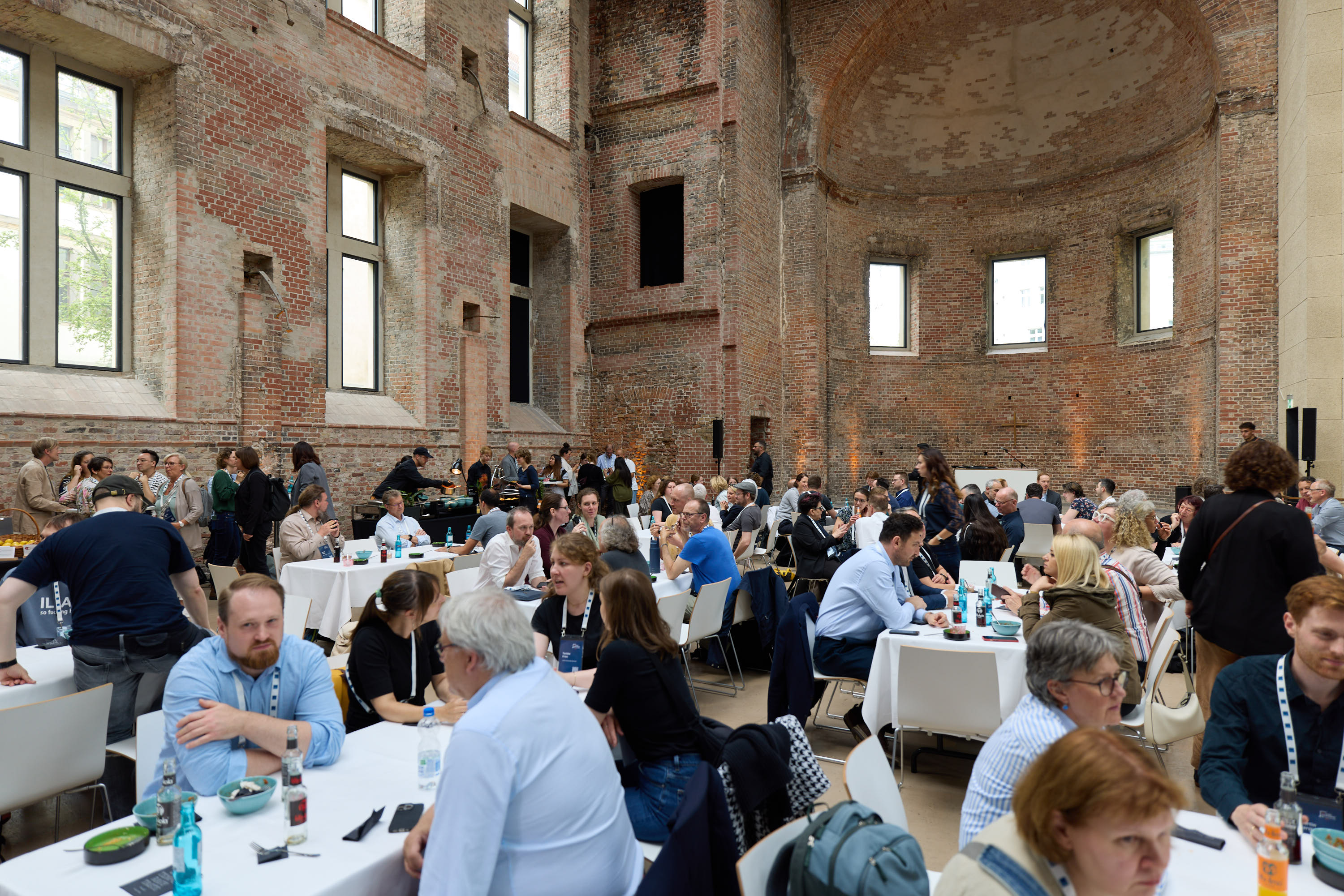
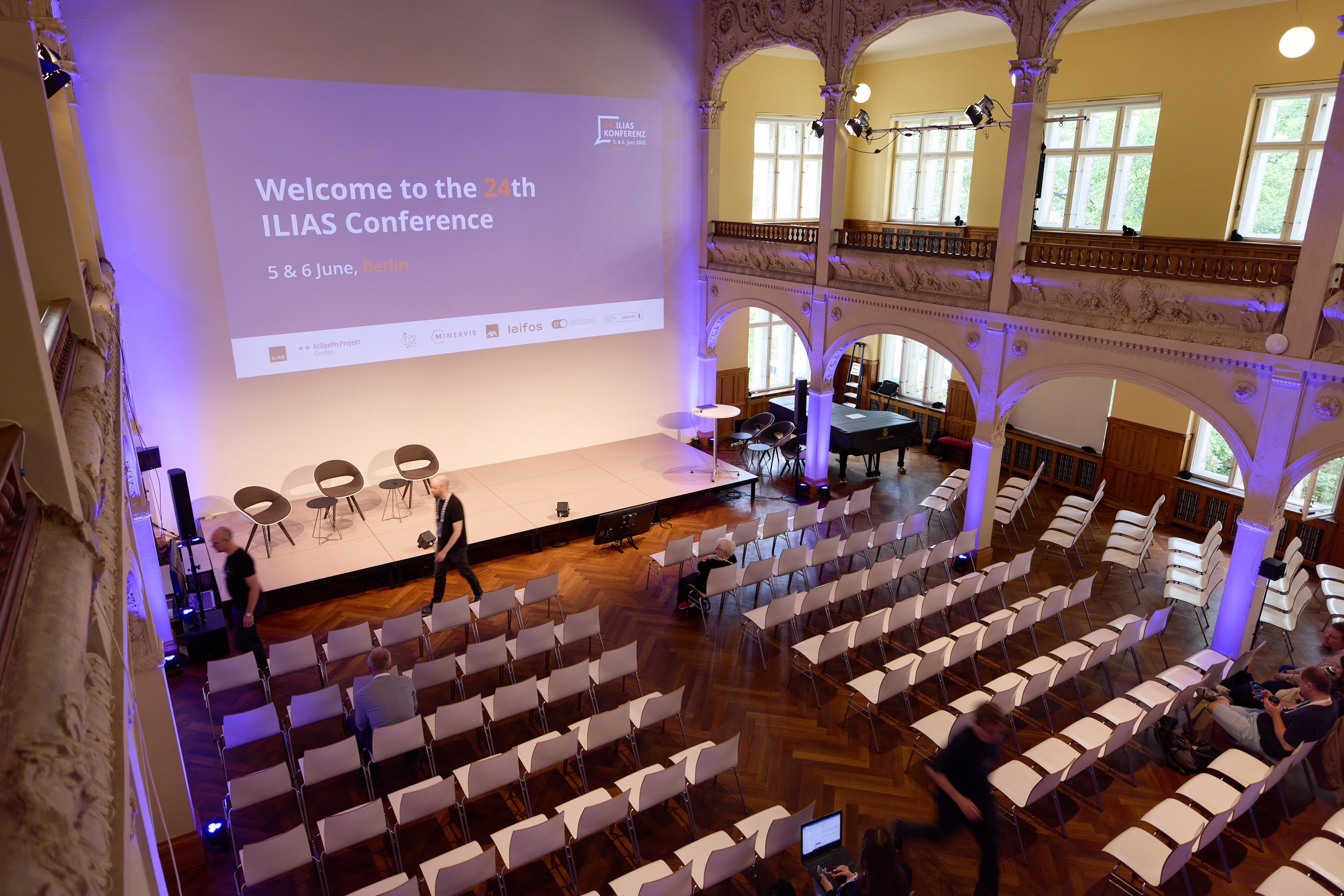
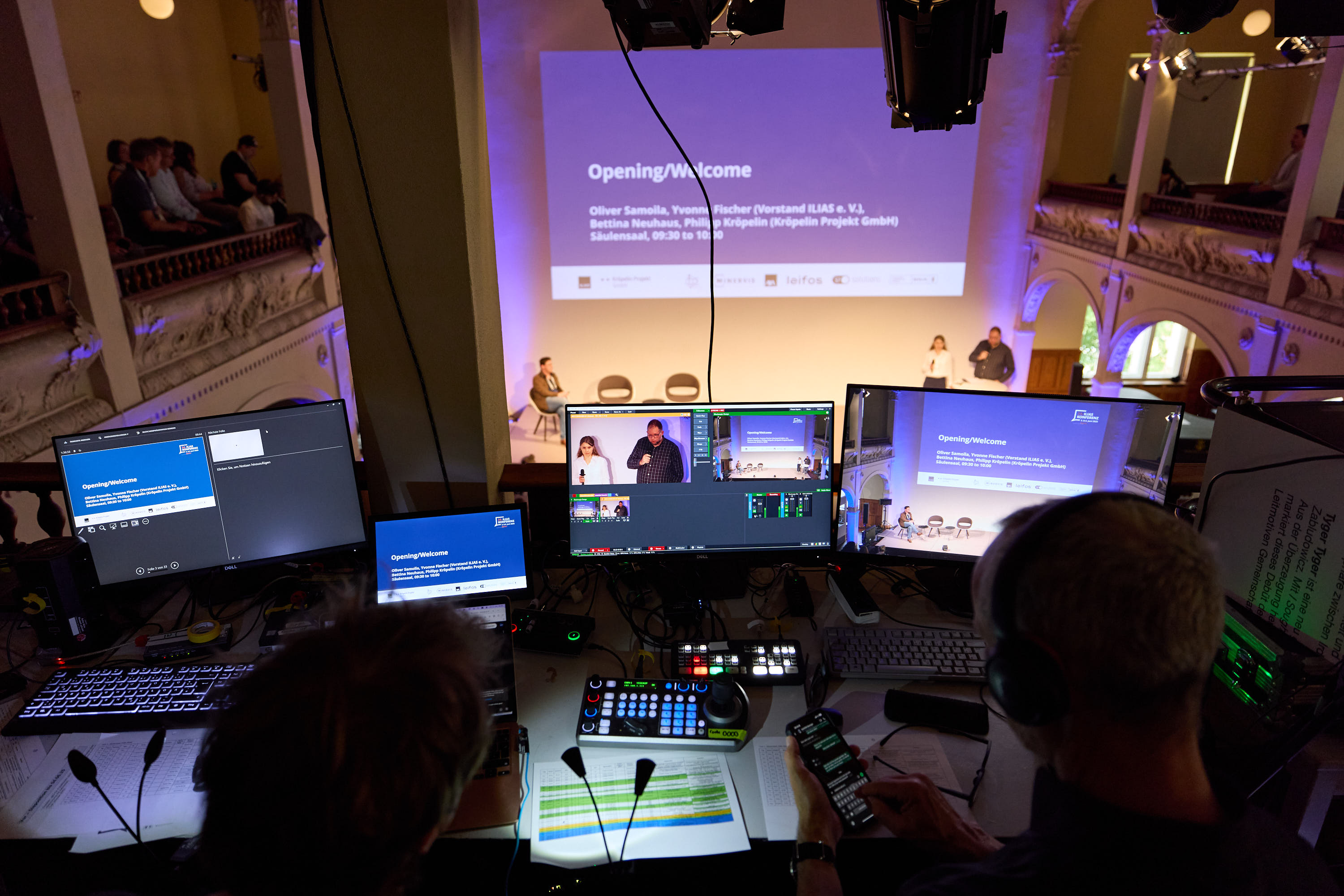
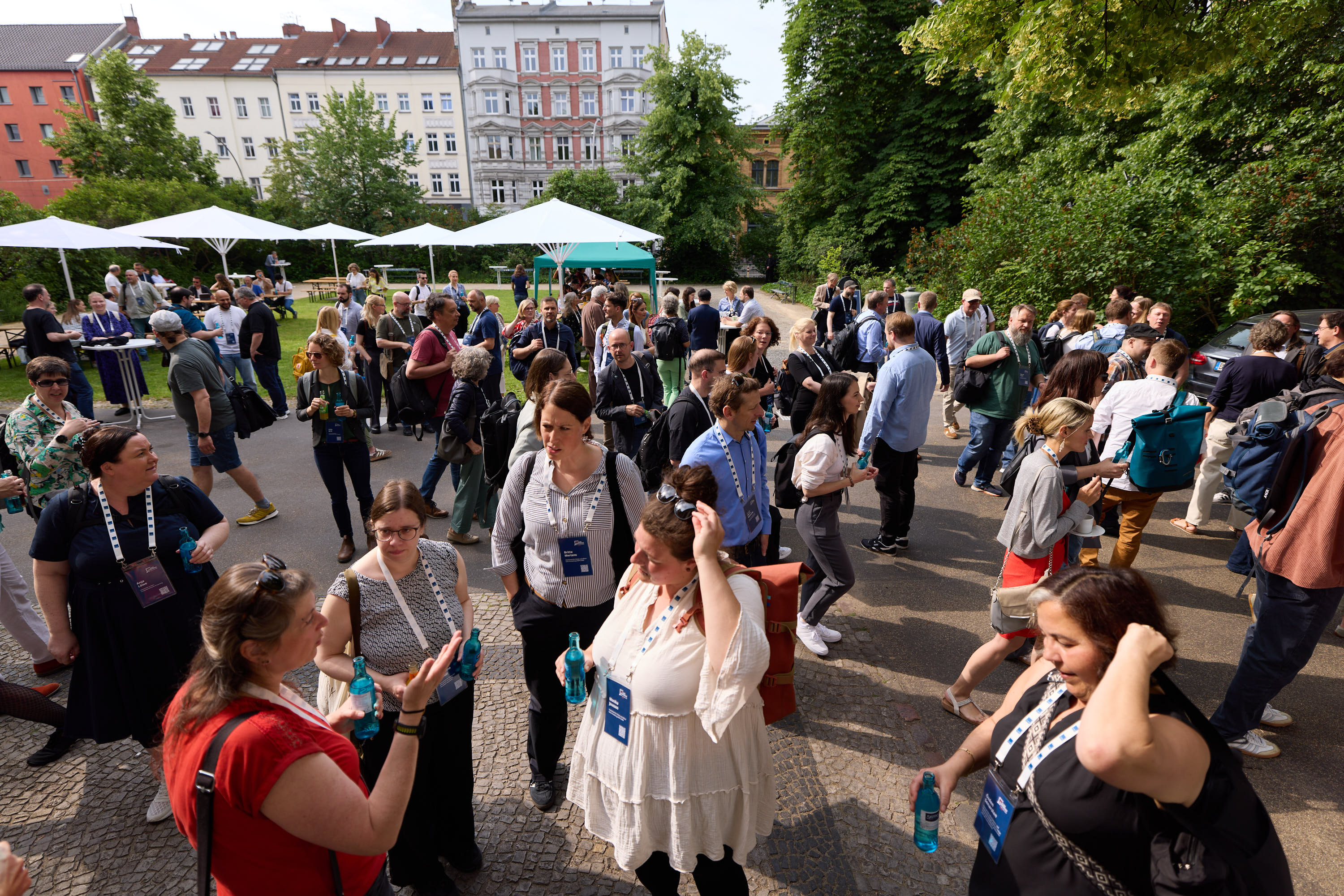

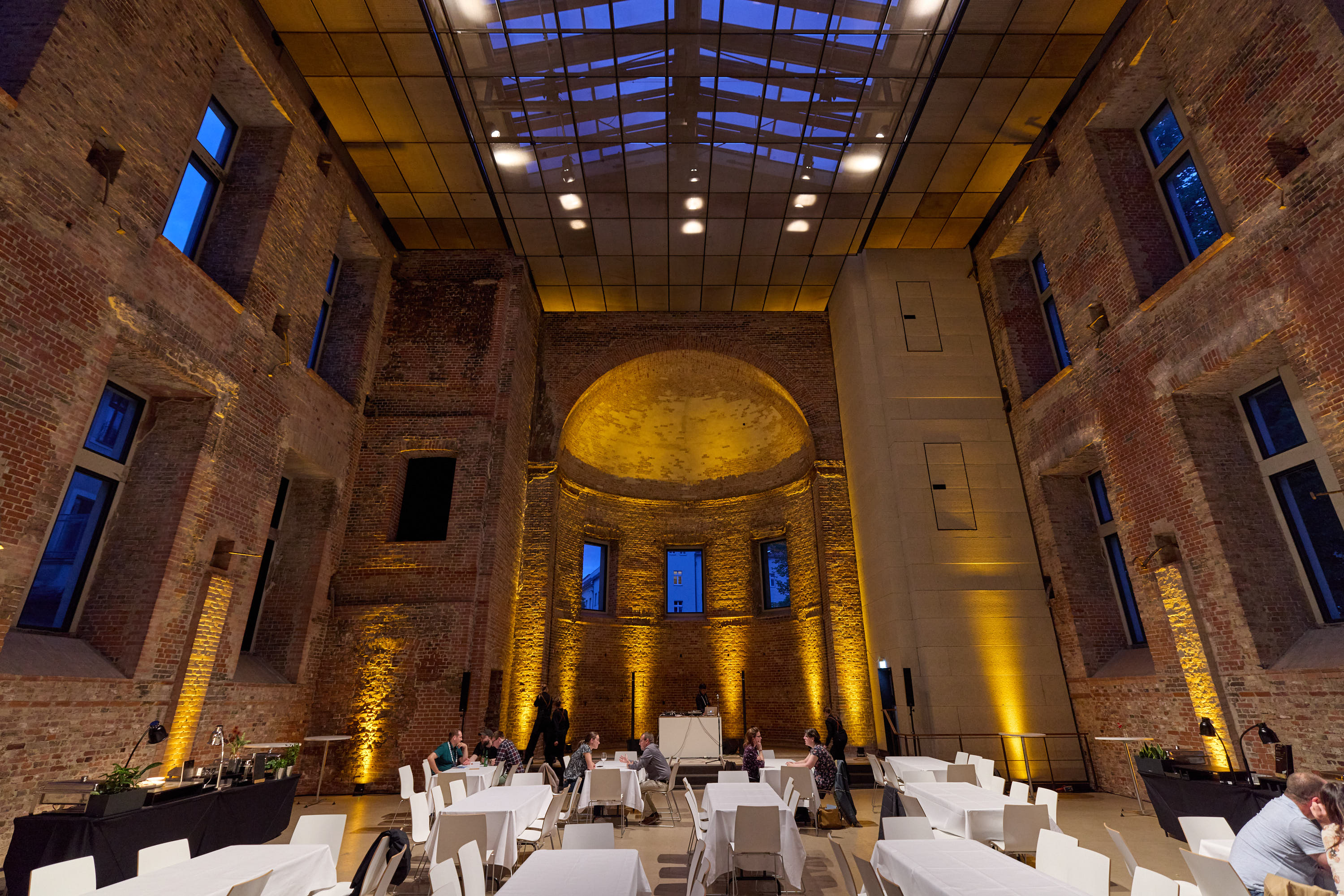
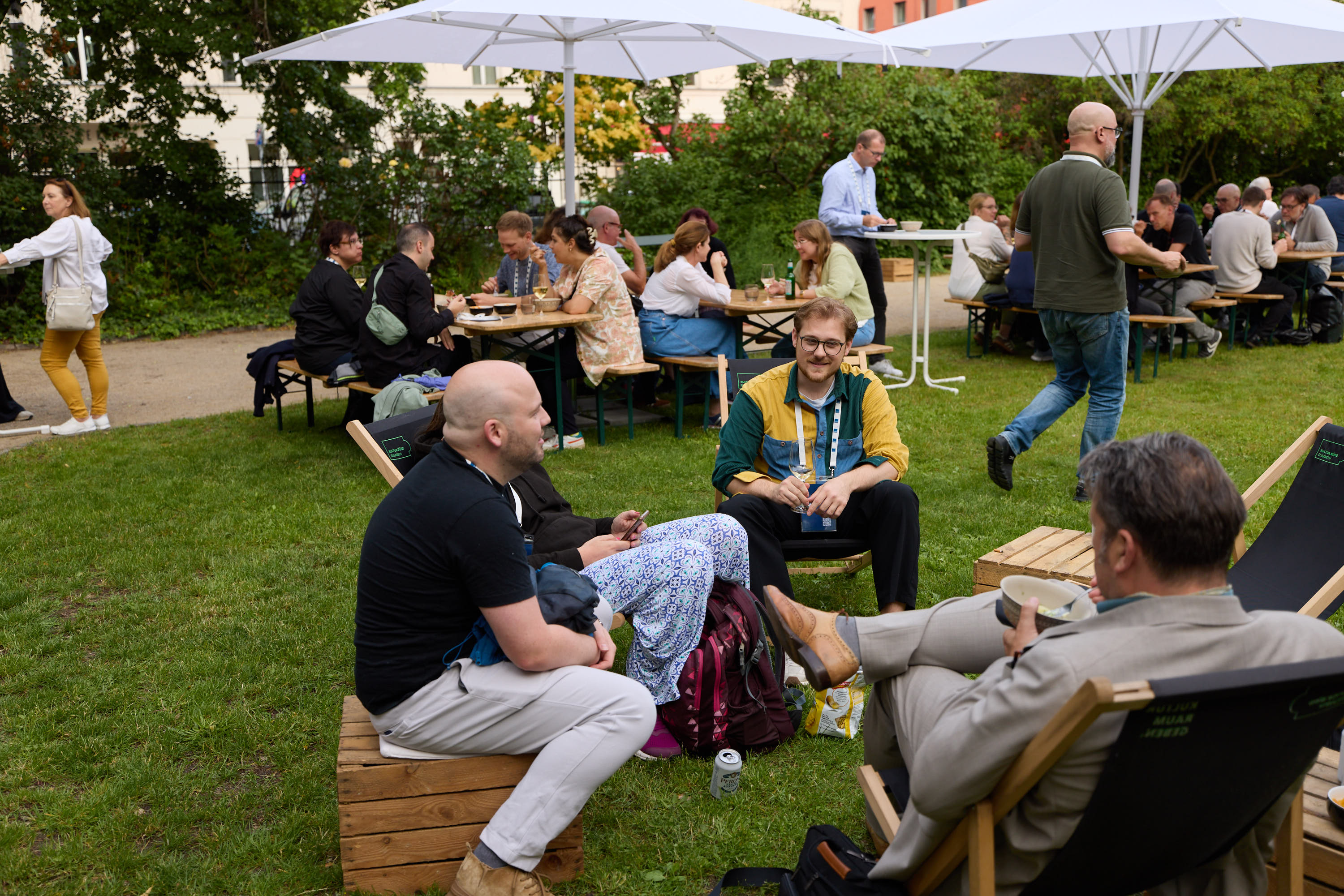
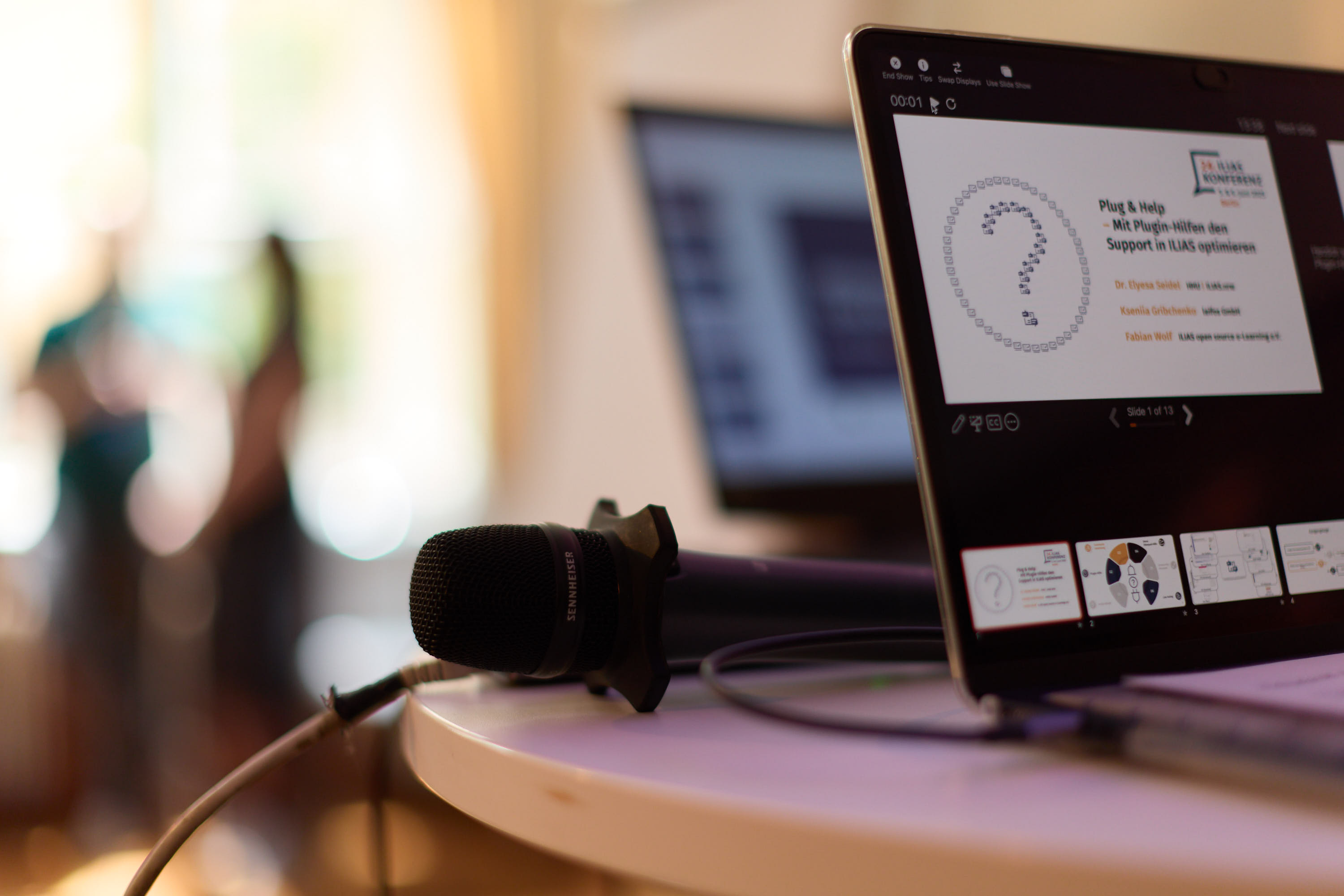
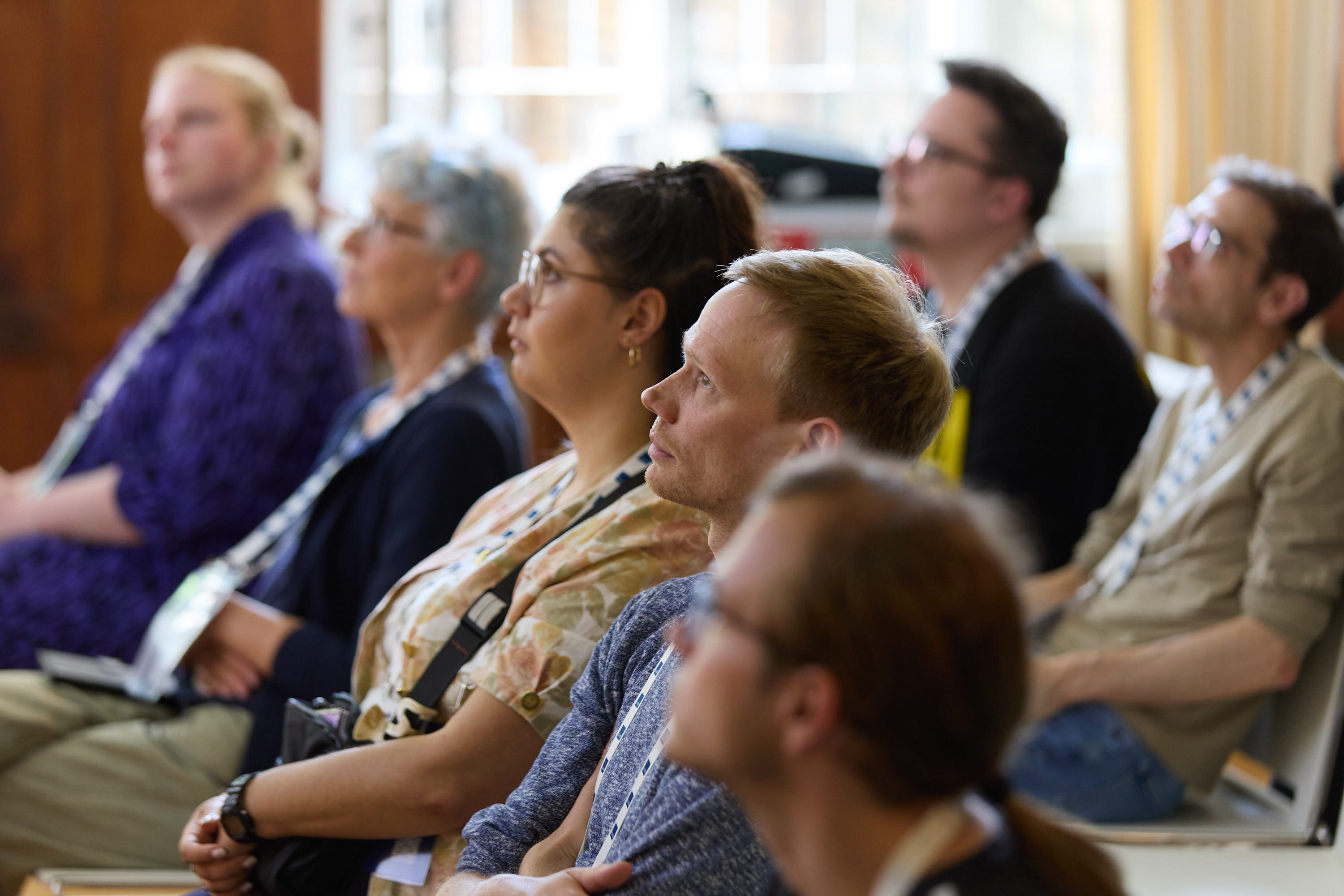
Digital Sovereignty
Something became clear to many of the attendees in Berlin for the very first time: ILIAS is more than just a learning platform. With millions of students using it every day, it is part of our basic digital services. Critical infrastructure that is open, free and conforms to data protection regulations – and needs to stay this way.
Especially in these times of growing geopolitical tensions and political upheavals, digital sovereignty has become a key issue for the future. And this is exactly the spirit conveyed in the conference – emphatically so and with a palpable sense of optimism.
A strong statement came across on Thursday morning in the roundtable on the topic of open source and digital sovereignty. On the panel: Dr. Anne-Sophie Waag from Wikimedia Deutschland e.V., Cornelis Kater von der Leibniz University Hannover and co-founder of the osbn (Open-Source-Blog-Netzwerk) organisation, Matthias Kunkel from the ILIAS Society and Monika Ilves from the digital policy society D64. What they had in common: the conviction that real independence is only possible with free software - European in concept, developed in a community and sustainably financed.
Those who use ILIAS are already playing their part. But that alone is not enough. Political will, public funding and above all long-term strategies are needed. And not just as lip service, but rather as real investment in our digital self-determination.
And what came out of this discussion? A goal that is bigger than any individual platform. And a community that already set off on this path a long time ago - step by step, code by code. ILIAS is on the move. And we are going with it.
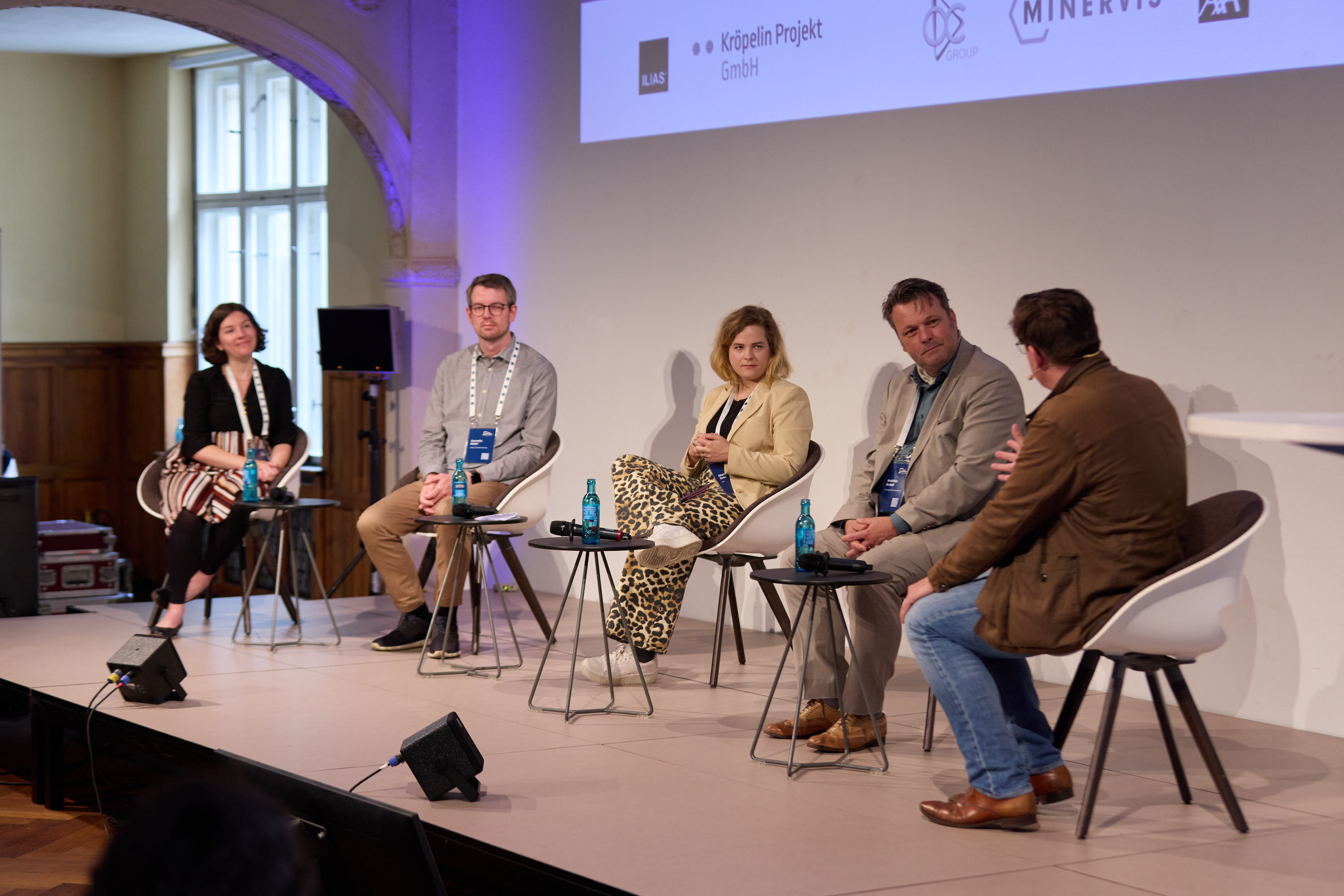
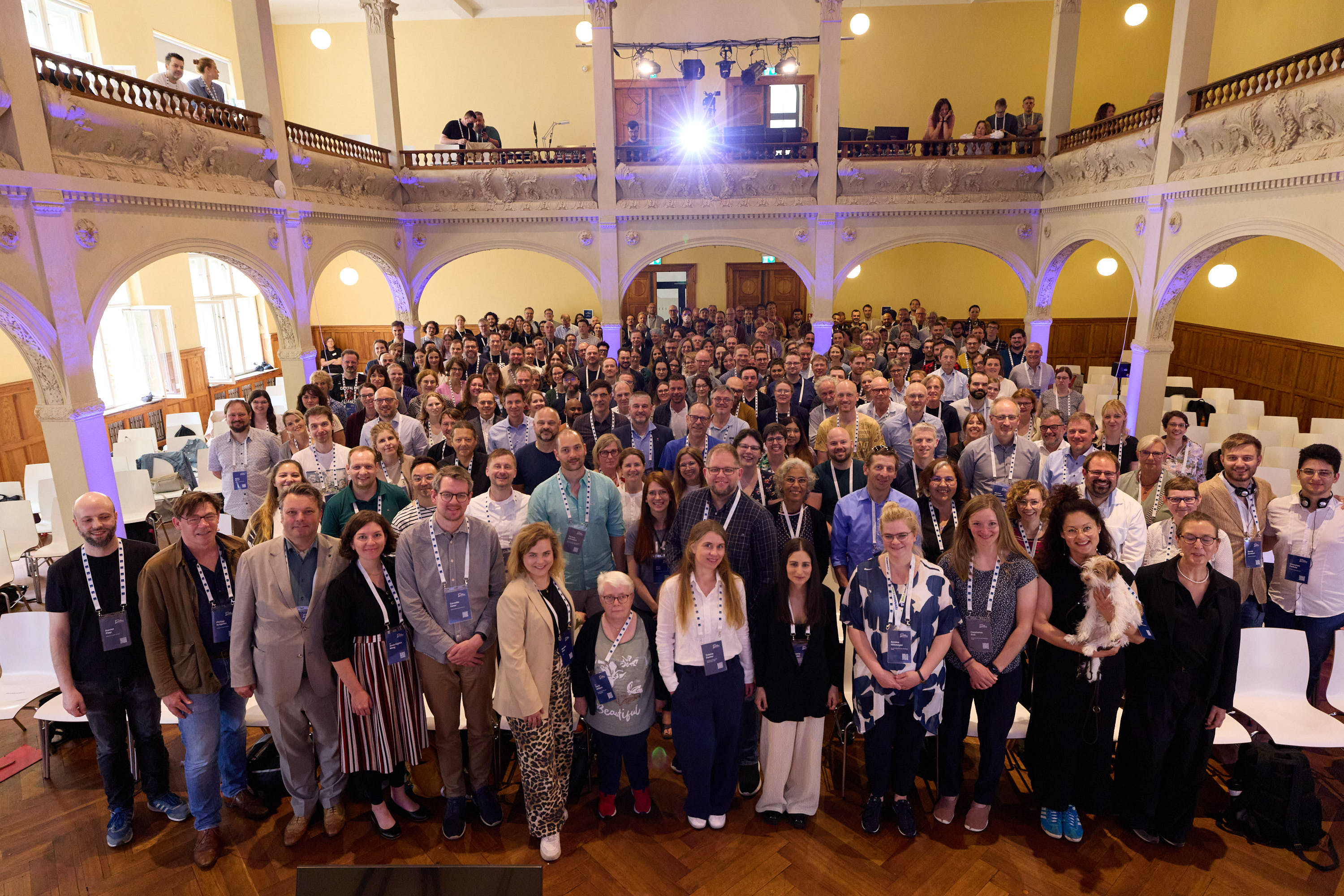
Artificial Intelligence: A Game-Changer or Merely Hype?
On Thursday afternoon, things picked up speed: in nine lightning talks, various speakers presented their topics each within 10 to 15 minutes - short and to the point. The topics ranged from new studies to AI alternatives and innovative ILIAS plugins. Entertaining, varied and anything but dry.
That artificial intelligence is now established in the education sector is beyond doubt. Current studies show that around 90% of students use AI in their everyday lives (see photo below) – especially as a digital learning coach. AI answers questions, helps with structuring, generates tasks. And yes, it can be misused. But generally speaking, AI is used in in a supportive and constructive manner.
It is exactly this way of using AI that needs to find a place in teaching. Not as a taboo, but rather as a chance. For education without AI is becoming increasingly difficult to envisage.
How LLMs (large language models) can be utilised successfully in an educational context was shown by Andreas Pippow (Fraunhofer), Anne-Sophie Waag (Wikimedia) and the ILIAS service providers leifos and Surlabs among others. Their message was also clear: alternatives to the large US platforms are needed – sovereign, compliant with data protection regulations and orientated towards the common good.
However, we are still lacking clear rules and regulations. Higher education institutions are faced with the prospect of having to develop their own policies for using AI – beyond ChatGPT, beyond the grey area. The discussion has been opened – and it is long overdue.
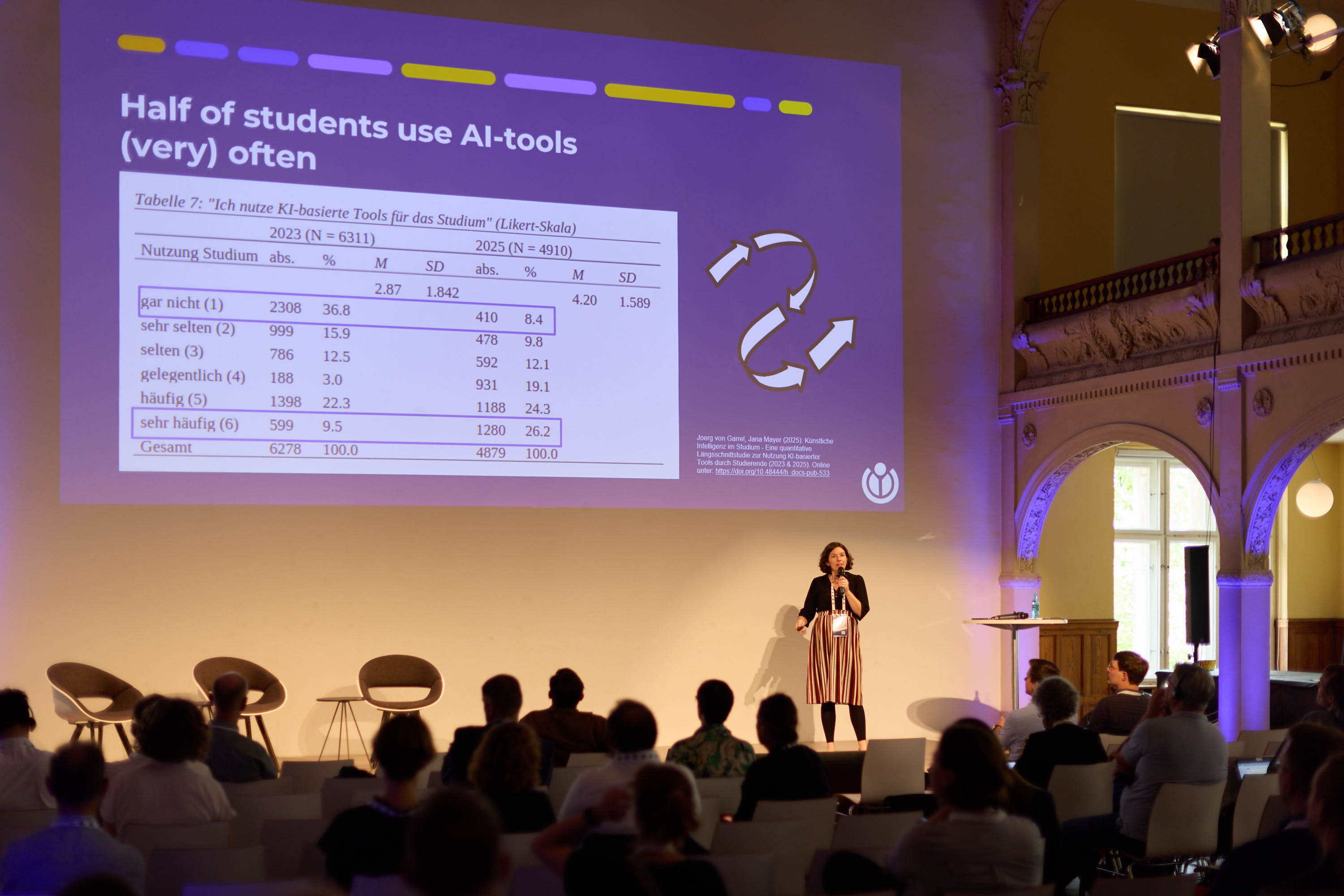
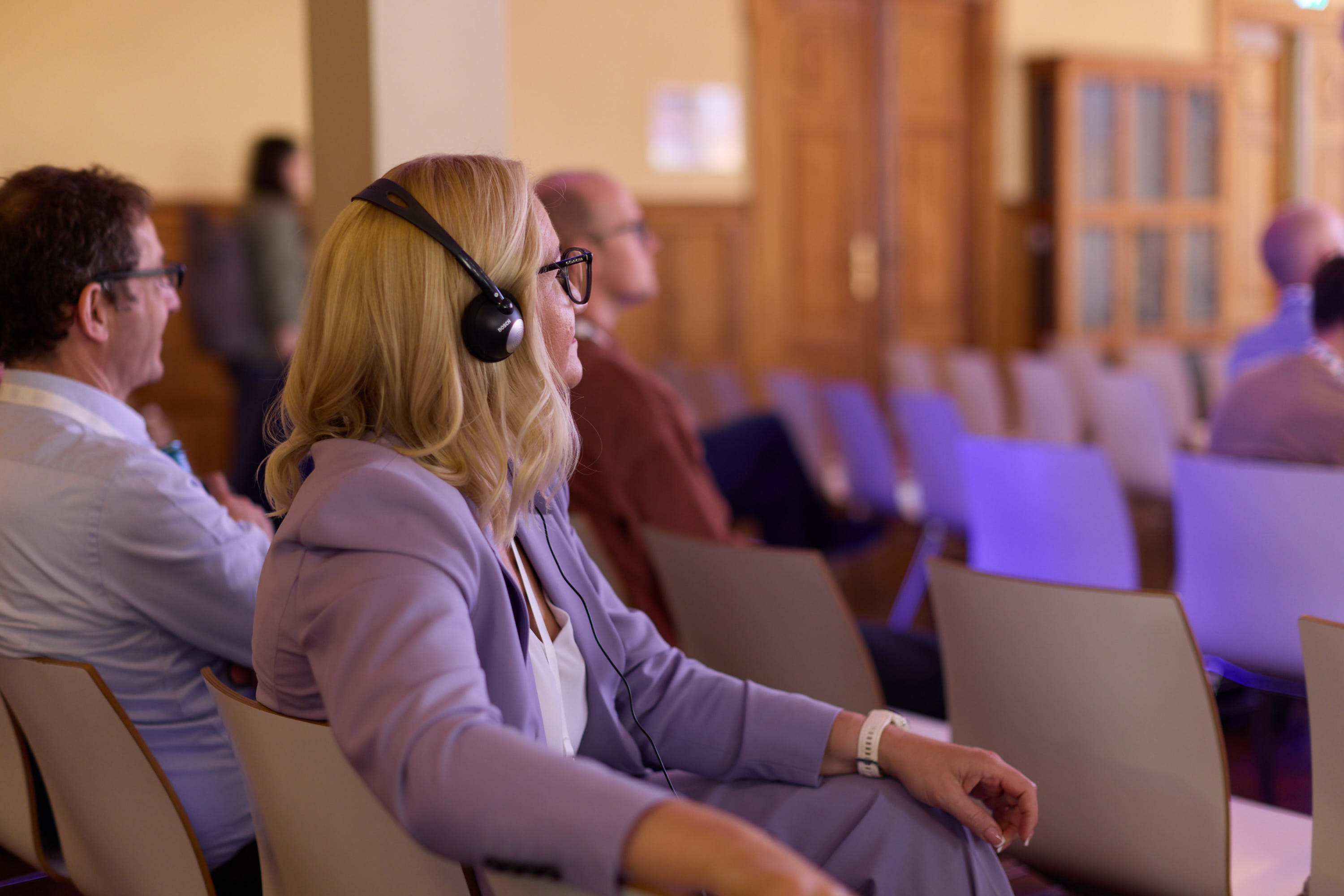
For a Sustainable Future
Sustainability played a central role in the planning of this year's ILIAS conference and was taken into account throughout the event, which was intended to be conducted as resource-efficiently as possible. And this worked. Also in part due to the willing and supportive participants.
Trains and public transport were actively recommended for participants travelling to and from the event. And successfully so! 63% travelled by train, only 8% by plane, 11% by car, and 18% (everyone from Berlin) relied on local public transport and train.
Take an even closer look and you will notice that some things were quite different at this conference. The event did without any printed material – there were no flyers or programmes printed on paper. Instead, everything was digital. The catering was sustainable and local and, of course, close attention was applied to sorting all rubbish for recycling.
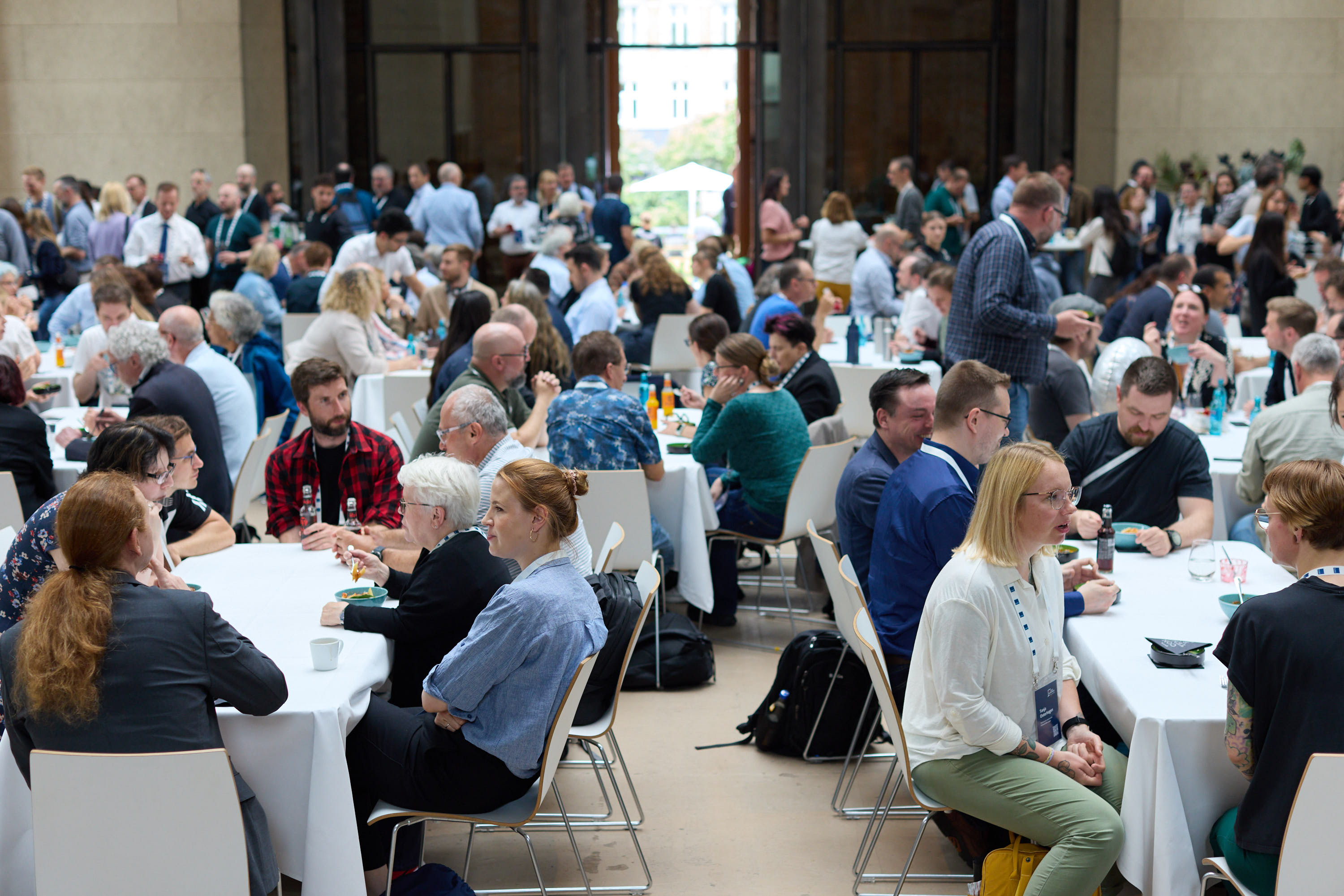
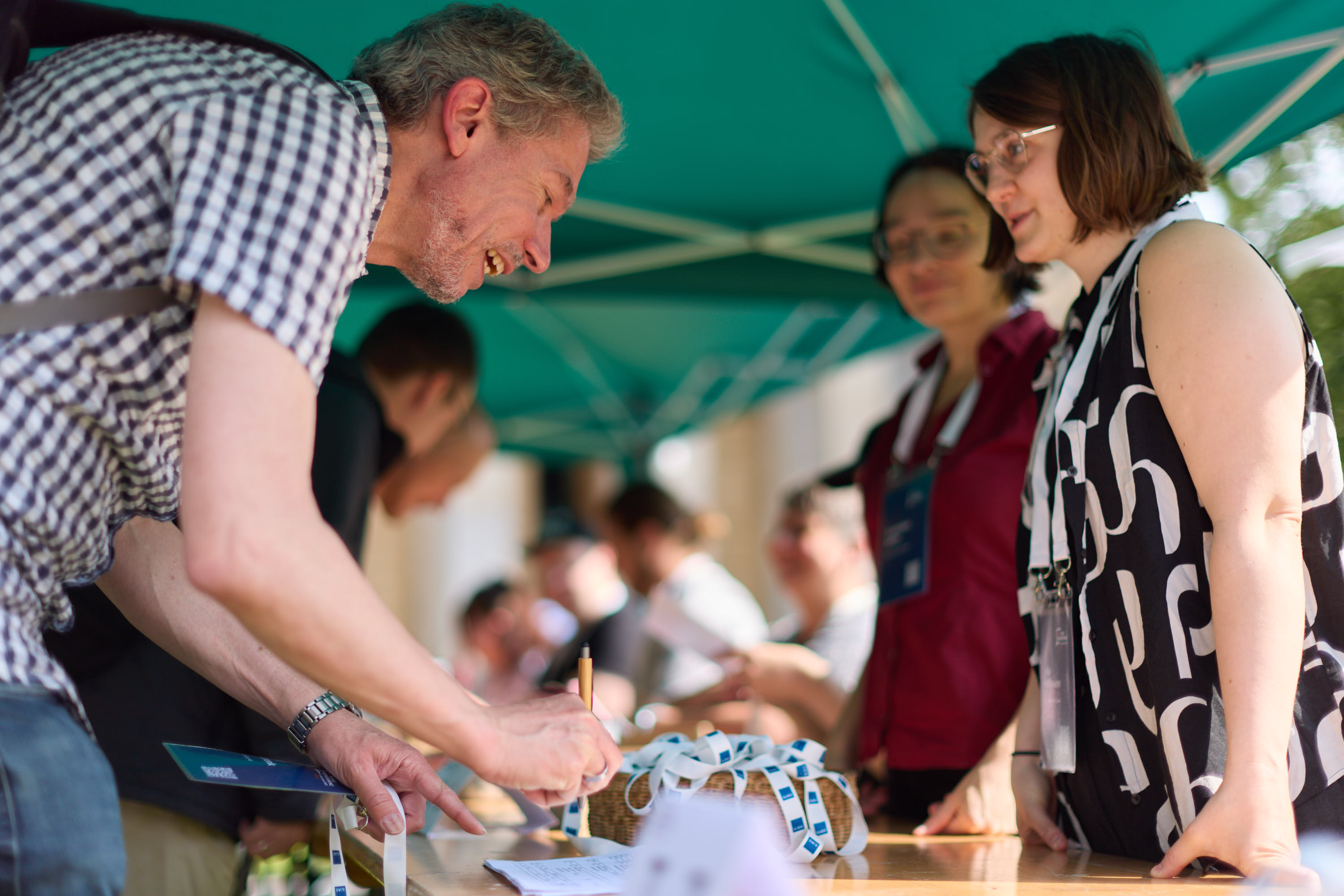
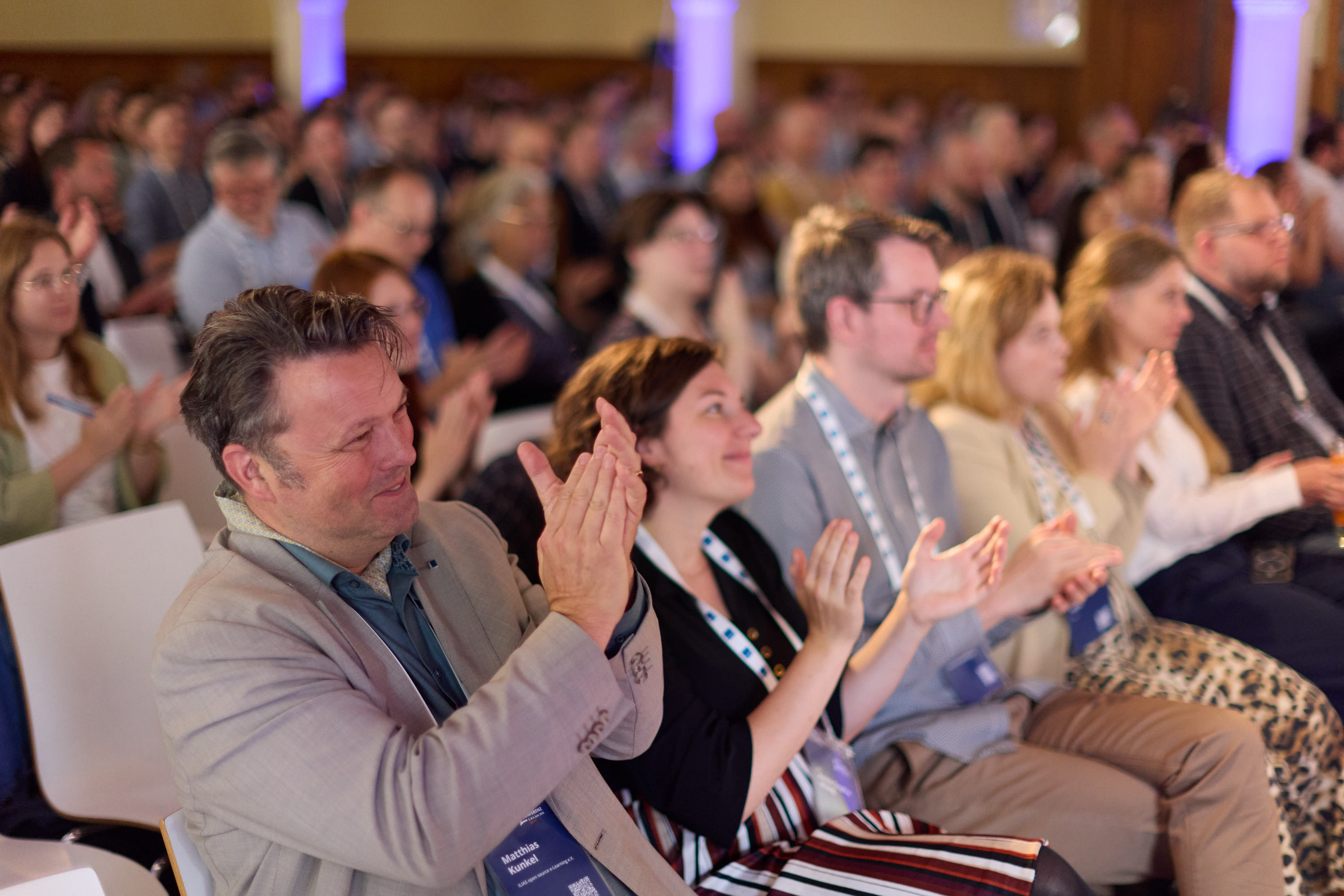
According to the Atmosfair CO₂ Event Calculator, the whole event, including travel to and from, hotel rooms, catering and location resulted in around 40 tonnes of CO₂ being released. That is the equivalent of around five return flights from Frankfurt to Sydney. For comparison: without all the measures, it could easily have been 50 or more tonnes of CO₂. With the savings of ten tonnes you could drive around the world 1.4 times by car or supply a four-person household with electricity for seven years. Crazy!
Put simply: sustainability wasn't merely a footnote to the conference, but rather a part of the concept. It was also great to see how well received it was.
For the Kröpelin Projekt GmbH team, organising this year's conference was not only a strenuous feat, but also a special experience. The preparation was intensive, but it offered the opportunity to break new ground, try out creative formats and experience the team in a completely new way. People swapped roles, developed ideas further, intentionally questioned routines. And this effort paid off. The consistently positive feedback from the participants was both a great confirmation and motivation. The conference didn't only generate enthusiasm because of its content though. It also showed what is possible when commitment and community come together.
And what did we take away from it all? A feeling of new beginnings. A system on the move. And a community that makes it all possible – with passion, conviction and a clear vision for the future.
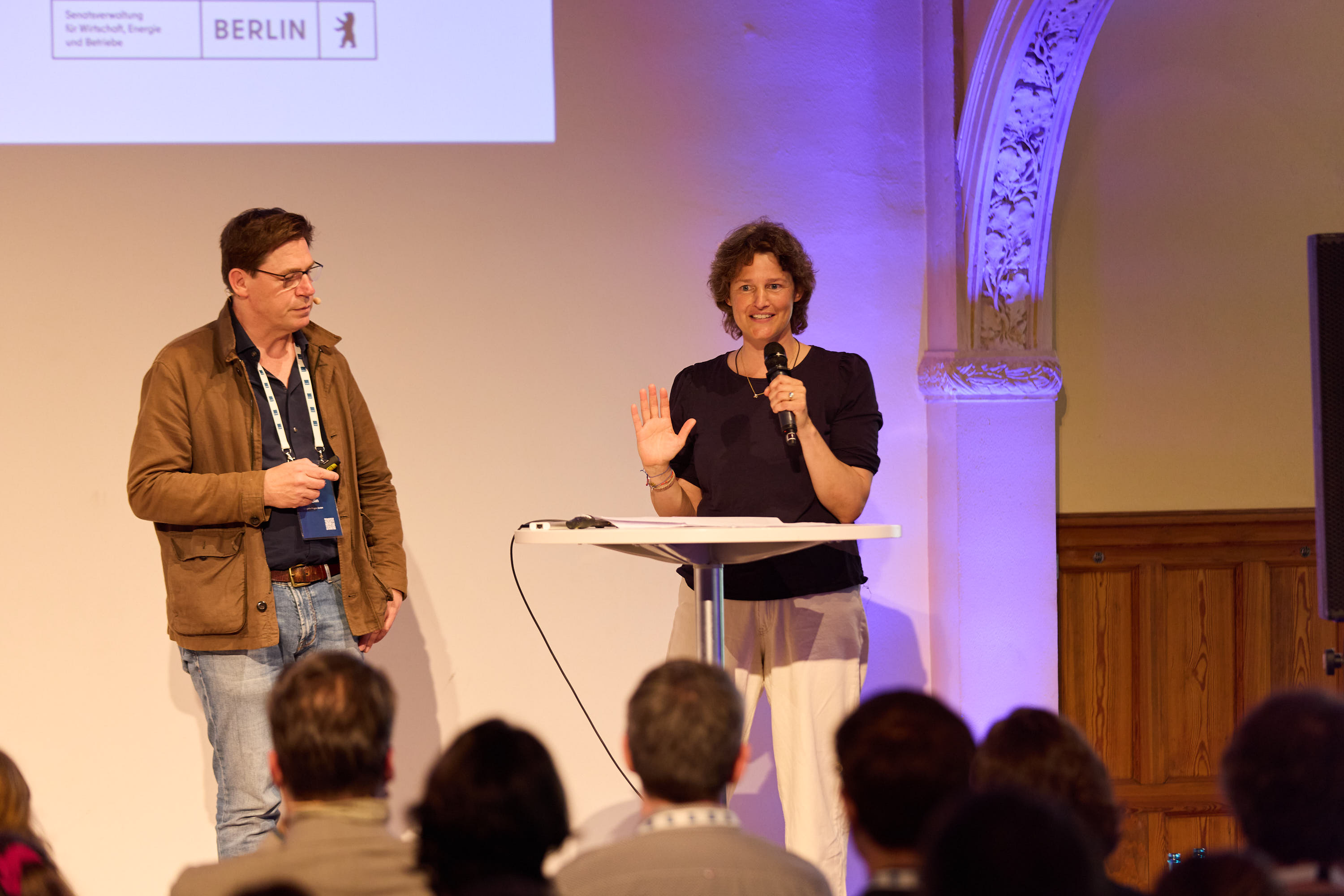
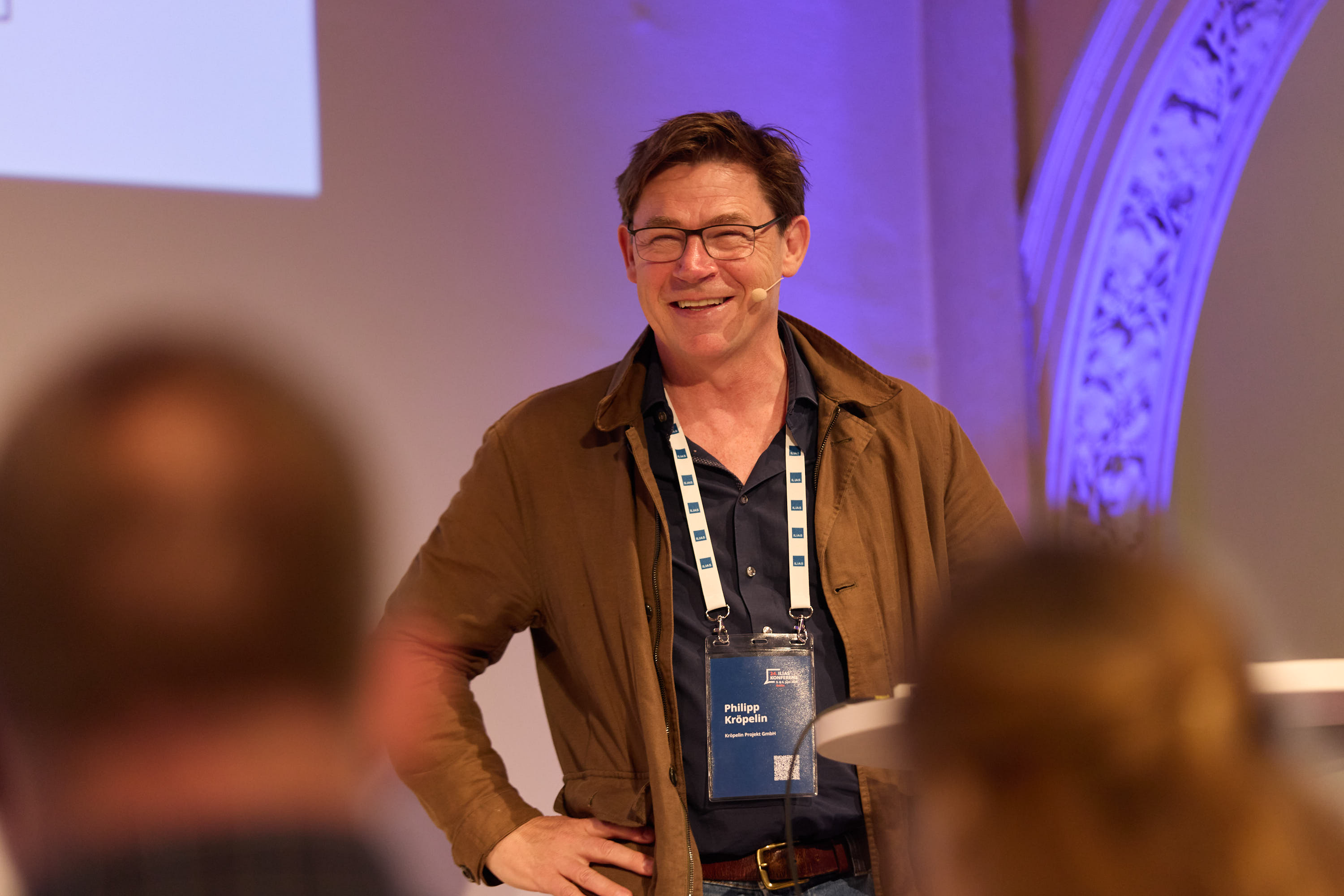
We'll Meet Again!
You don't have to wait long for the next opportunity to experience such a convivial get-together: on the 9th and 10th September 2026, the 25th ILIAS conference will take place in Hamburg. With new topics, new ideas and no doubt again with that special spirit that makes ILIAS something more than just a piece of software.
For everyone who hasn't been able to get enough of the ILIAS conference, you can find the recordings of the live streams from both days on the society's YouTube channel. Have a look - it is worth it – whether to catch up, rediscover or build upon some of the ideas shared. And if you don't want to miss anything in the future, sign up to our Conference Newsletter and receive all the latest news directly in your inbox.